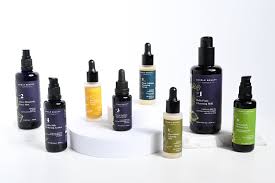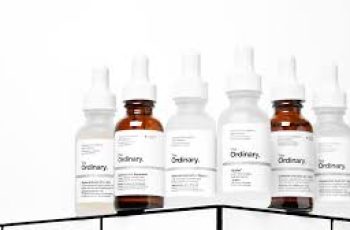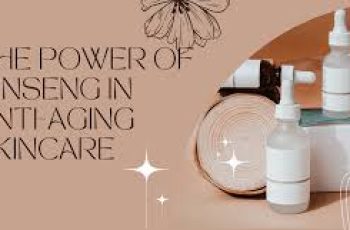
The Science of Phytosterols in Skin Care: Nature’s Secret to Firm, Hydrated, and Youthful Skin
Have you ever wondered how plants manage to stand tall and thrive despite being exposed to harsh winds, blazing sun, and other environmental stresses?
The secret lies in special compounds called phytosterols.
These natural substances provide plants with strength and resilience, and remarkably, they offer similar protective and restorative benefits when applied to human skin.
Thanks to their unique structure and properties, phytosterols have become increasingly popular in skin care formulations aimed at improving hydration, repairing damaged skin, reducing signs of aging, and soothing inflammation.
In this comprehensive guide, you’ll discover the fascinating science behind phytosterols, why they are so effective, and how you can incorporate them into your skincare routine tailored to your unique skin type.
If you haven’t already identified your Baumann Skin Type, I highly recommend taking the quiz at Skintypesolutions.com.
Understanding your skin’s specific needs ensures you choose the best phytosterol-containing products without risking clogged pores or irritation.
What Are Phytosterols?
Phytosterols, also known as plant sterols, are naturally occurring compounds found in the cell membranes of plants.
Structurally, they are very similar to cholesterol found in humans and animals, sharing a common sterol backbone.
This resemblance enables phytosterols to function in ways comparable to cholesterol, especially in reinforcing cellular structures.
In plants, phytosterols stabilize cell membranes, maintaining their integrity and fluidity under stressful environmental conditions.
When applied to the skin, these compounds help strengthen the skin’s lipid barrier, which is crucial for retaining moisture, protecting against irritants, and promoting overall skin health.
How Are Phytosterols Similar to Cholesterol in the Skin?
Cholesterol is an essential component of the skin’s outermost layer, the stratum corneum.
It forms part of the lipid matrix along with ceramides and fatty acids, working as a natural “glue” that holds skin cells together. This lipid barrier is vital for:
Preventing water loss (hydration)
Protecting skin from external aggressors like pollution and UV radiation
Maintaining skin elasticity and smoothness
Because phytosterols share a similar molecular structure, they can integrate into the skin’s lipid layers and mimic cholesterol’s barrier-strengthening effects.
By supplementing the skin with phytosterols, you help reinforce this protective layer, leading to better hydration, increased resilience, and improved skin texture.
Common Types of Phytosterols in Skin Care
Phytosterols are naturally present in many plant oils, each offering distinct skin benefits depending on their sterol composition.
Below are some of the most widely used phytosterols and their typical sources:
Beta-sitosterol: The most abundant phytosterol found in oils such as avocado, coconut, castor, grapeseed, and olive oil.
It is known for its moisturizing and anti-inflammatory effects, helping to calm irritated skin and improve skin softness.
Schottenol and Spinasterol:
Found mainly in argan oil, these sterols are prized for their anti-inflammatory and barrier-repairing capabilities, making argan oil a favorite ingredient for dry or sensitive skin.
Campesterol: Extracted from oils such as sunflower, corn, rapeseed, and soybean, campesterol is linked to enhancing skin elasticity and improving overall skin texture.
Stigmasterol: Commonly derived from soybeans and legumes, stigmasterol is known to support skin repair and reduce inflammation, making it beneficial for sensitive and damaged skin.
Brassicasterol: Found in canola oil, it aids in repairing the skin barrier, helping the skin recover from dryness and irritation.
Benefits of Phytosterols for Your Skin
Phytosterols offer a broad spectrum of skin benefits that address many common concerns:
1. Hydration and Barrier Repair
One of the primary roles of phytosterols is to repair and strengthen the skin’s lipid barrier.
Because they resemble the natural cholesterol in your skin, they can effectively plug gaps in the skin barrier that form due to aging, dryness, or environmental damage.
A healthy lipid barrier locks in moisture, preventing transepidermal water loss (TEWL), which keeps your skin feeling plump, smooth, and hydrated throughout the day.
2. Anti-Aging Properties
Phytosterols have been shown to stimulate collagen synthesis, the essential protein that provides skin with strength and elasticity.
Collagen production naturally declines with age, leading to fine lines, wrinkles, and sagging skin.
By promoting collagen formation, plant sterols can help reduce visible signs of aging over time, making skin look firmer and more youthful.
3. Antioxidant Defense Against Dark Spots and Environmental Damage
Phytosterols exhibit strong antioxidant activity, meaning they can neutralize free radicals generated by UV exposure and pollution.
These free radicals cause oxidative damage that accelerates aging and contributes to hyperpigmentation (dark spots).
By combating oxidative stress, phytosterols protect skin cells and help maintain an even skin tone.
4. Soothing Inflammation and Redness
Skin conditions such as rosacea, eczema, and general irritation often involve inflammation.
Phytosterols possess anti-inflammatory properties that help reduce redness, swelling, and discomfort. Their calming effects make them suitable for sensitive skin types prone to flare-ups.
5. Supporting Skin Repair and Regeneration
Phytosterols encourage the regeneration of skin cells, assisting in the healing of damaged or sunburned skin.
This repair mechanism helps restore the skin’s natural barrier faster, improving texture and resilience.
Side Effects and Considerations When Using Phytosterols
While phytosterols are generally safe and beneficial, there are a few precautions to keep in mind:
1. Potential for Pore Clogging
Some oils rich in phytosterols can be comedogenic, meaning they may clog pores and worsen acne, especially in oily or acne-prone skin.
For example, coconut oil and olive oil are high in phytosterols but also have high comedogenic ratings and should be avoided if you struggle with breakouts.
2. Allergic Reactions
Though rare, some individuals may experience allergic reactions to certain plant oils containing phytosterols.
Always perform a patch test before introducing a new product, especially if you have sensitive skin.
How to Incorporate Phytosterols Into Your Skin Care Routine
Phytosterols are versatile and commonly found in various skincare products, including:
Moisturizers: Often enriched with beta-sitosterol to boost hydration and barrier repair.
Serums: Lightweight formulas containing phytosterols are excellent for reducing inflammation without adding heaviness or clogging pores.
Facial Oils: Oils like argan or grapeseed provide soothing benefits with natural phytosterols.
Anti-aging creams: Products focused on collagen support often include phytosterols to enhance skin firmness.
Tips for Choosing the Right Products:
If you have dry or mature skin, rich creams and oils with beta-sitosterol and campesterol are excellent choices for deep hydration and skin renewal.
For sensitive or inflamed skin, opt for lightweight serums or lotions with argan oil or stigmasterol to calm irritation without causing breakouts.
If you are acne-prone, avoid heavy oils like coconut or olive oil and choose products formulated for non-comedogenic performance.
Knowing Your Skin Type Matters
Since phytosterols come from a variety of plant oils with different properties, matching products to your Baumann Skin Type is essential for maximizing benefits and avoiding unwanted side effects.
The Baumann Skin Type system categorizes skin into 16 types based on oiliness, sensitivity, pigmentation, and aging, enabling you to select ingredients that complement your skin’s unique needs.
Take the Baumann Skin Type Quiz to discover your type and find customized recommendations on incorporating phytosterols and other beneficial ingredients into your routine.
Final Thoughts: Are Phytosterols Right for Your Skin?
Phytosterols represent an elegant blend of nature and science—plant-derived compounds that mirror the skin’s own cholesterol to restore hydration, enhance barrier function, reduce inflammation, and fight the visible effects of aging.
When carefully selected according to your skin type and concerns, they can be a powerful addition to your daily skincare regimen.
Remember to:
Avoid oils and products that are too heavy or comedogenic if you have acne-prone skin.
Patch test new products, especially if you have sensitive or reactive skin.
Consider your skin’s specific needs and sensitivities using tools like the Baumann Skin Type quiz.
By doing so, you can harness the natural strength of phytosterols to keep your skin firm, youthful, and radiant.


